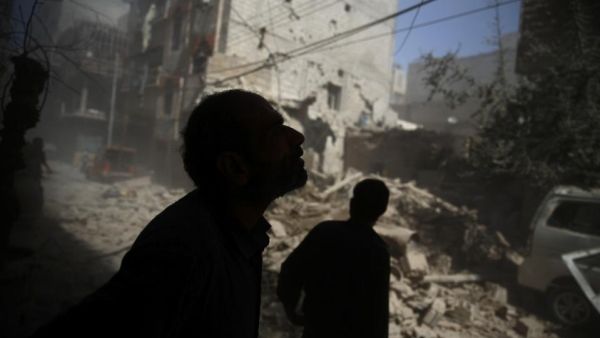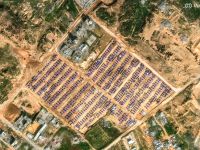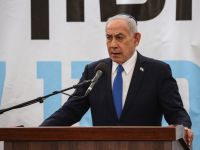Under Russian bombs, Syrians speak out
It’s official. As of Wednesday, the Russian air force officially began carrying out airstrikes against Islamic State targets throughout Syria. The reality on the ground during the first day, however, told a different story. Russian air strikes killed 17 civilians in Talbiseh, a town in the rural northwestern province of Homs, nearly 30 miles away from areas controlled by ISIS militants. Russian warplanes also reportedly targeted Tajamu al-Ezzah, a US-backed rebel group, in the northern rural areas of Hama province.
Continue reading on Syria Deeply
Afghan women by Farzana Wahidy
The Afghan city of Kunduz was seized by the Taliban this week. A hospital in Kunduz was bombed today during the US airstrike –Medecins Sans Frontieres says it gave the coordinates of hospital (hit by an airstrike that killed at least 19 people) to US forces several times.
Another 19 human beings and all their lives are now being reduced to collateral damage. Afghanistan, and all the other war-torn places can’t seem to leave my head.
Continue reading on Middle East Revised
The handshake that shook Iran
First there was the 2013 telephone conversation between Presidents Obama and Rouhani during Rouhani’s visit to New York, which met with outrage from Iran's hardliners. Two years on, the “unplanned” handshake between Obama and Iranian Foreign Minister Mohammad Javad Zarif has angered them once again.
Whether it was planned or not, many commentators have already characterized the handshake at the United Nations building on Tuesday, September 29 as historic. Hardliners wasted no time and quickly dismissed it as “improper” — as well as referring to comments made by the supreme leader Ayatollah Khamenei following the famous 2013 phone conversation as back up. At the time, Khamenei did not directly refer to the conversation, but he did give hardliners enough to use to their advantage, saying that certain events during Rouhani’s New York trip had been “inappropriate”.
Continue reading on IranWire







